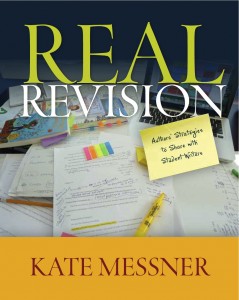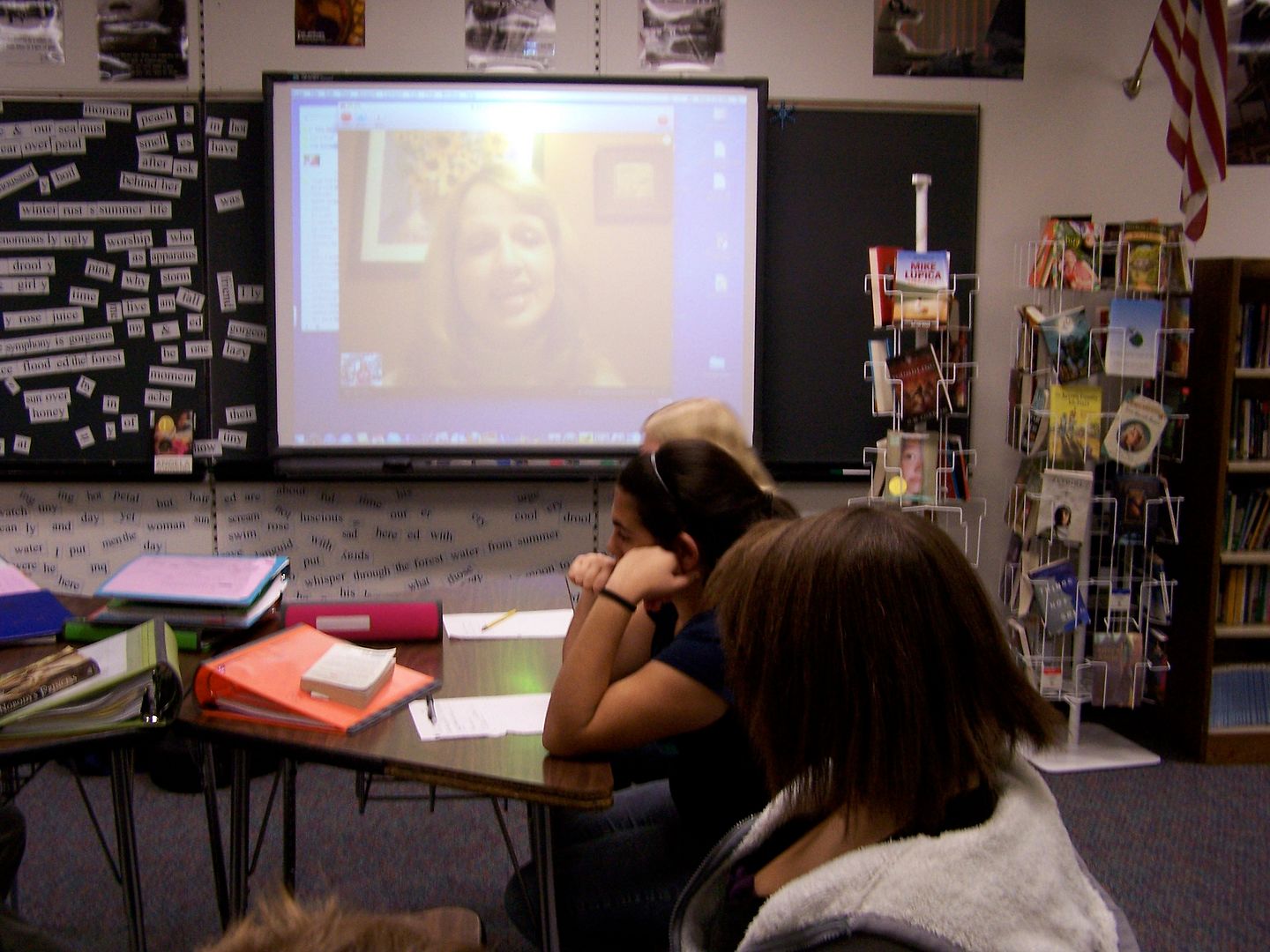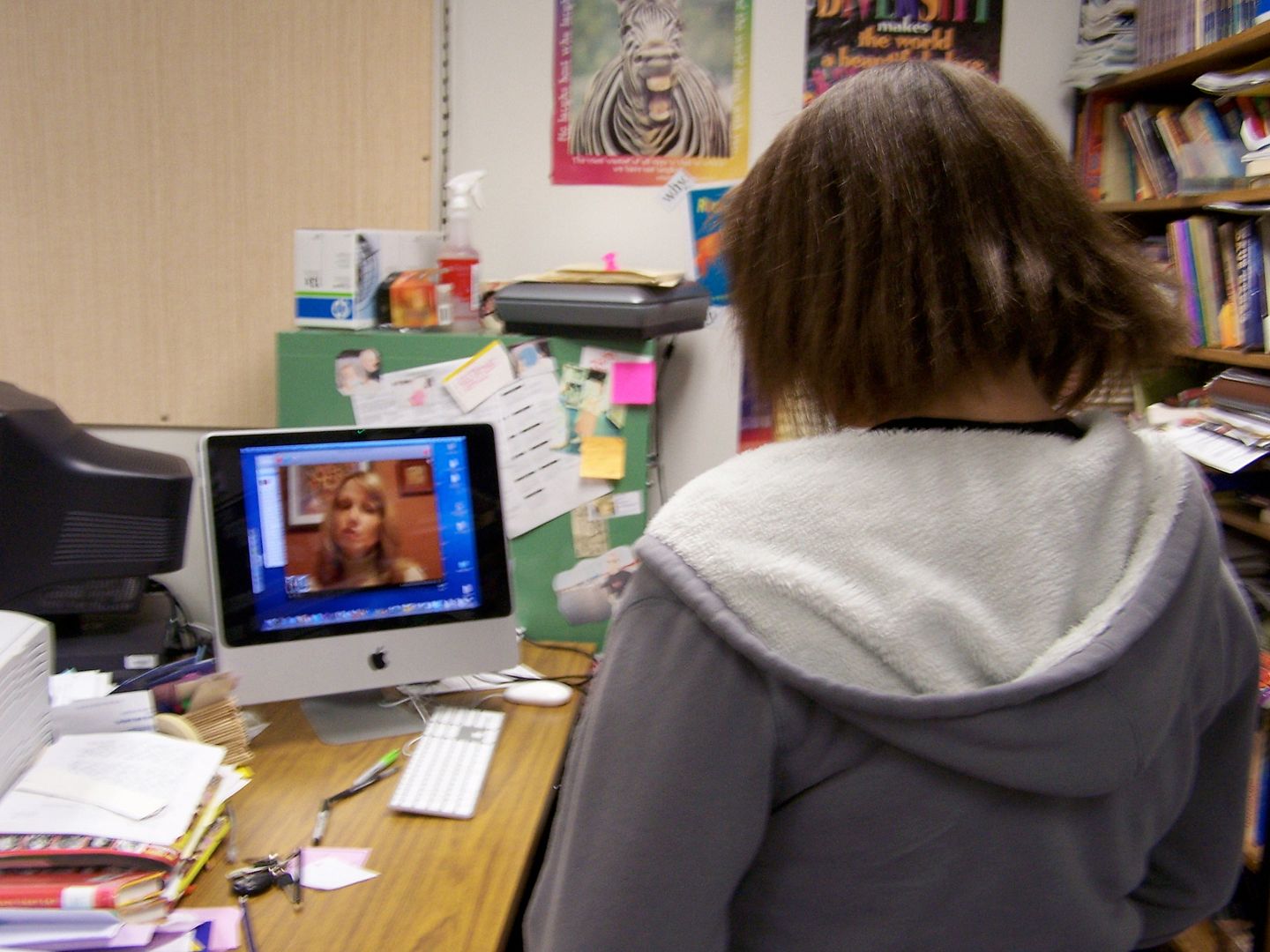I’ve always been a fan of technology and its potential to help people learn and collaborate. I’ve been thinking for a while about social networking and education, and how it’s probably not such a great idea for schools to simply block sites like Facebook & Twitter and pretend they don’t exist, rather than teaching kids how to use them responsibly. I’m hoping to do some collective tweeting with my classes in the fall as a way to model effective, responsible use of social media. I’ve been on Twitter as
@KateMessner for a while, but I’ve set up a special account, @
TweetK12, to talk with other educators interested in the concept of using Twitter in the classroom. Feel free to follow & join in that conversation if you’d like. I’m working on a proposal to present to our district technology coordinator for approval right now.
This past week, I’ve also been lamenting the fact that our regular classes are over — and that I didn’t have the opportunity to talk with my students about the way the world is changing right before their eyes…on Twitter.
Even if you aren’t on Twitter, you’ve probably heard the news reports of how protesters in Iran are using it to overcome government censors, to organize and share news and images of the demonstrations with one another and with the world. If I were still teaching this week, we’d be talking about the history of uprising, thinking back to Thomas Paine and our reading of Laurie Halse Anderson’s CHAINS and how Isabel had to hide her illicit copy of Common Sense. We’d talk about the efforts that those in power have always made to control the flow of information. Totalitarian regimes, in particular, use isolation as a weapon against their people.

Only now it’s not working. Iranian protesters are using 21st century communication tools to circumvent government filters, and people around the world are using those same tools to help them – changing the time zones in their profiles to Tehran to help shield those tweeting from Iran, even showing support by tinting their avatars green, the color that’s come to symbolize the Iranian opposition.
John Green talks about all this much more eloquently today at his blog, Sparks Fly Up, summing up with this:
Twitter is not about what you had for breakfast, or Khloe Kardashian, or me. It’s about evening the playing field.
Exactly. How the story of #iranelection will end is anyone’s guess, but I believe the world is a different place than it was just a week ago. A place that’s a little less safe for governments that deny human rights, and a place where people living under those governments feel a little less alone.








 Today in my 7th grade classroom, we started our first read-aloud of the school year,
Today in my 7th grade classroom, we started our first read-aloud of the school year, 
